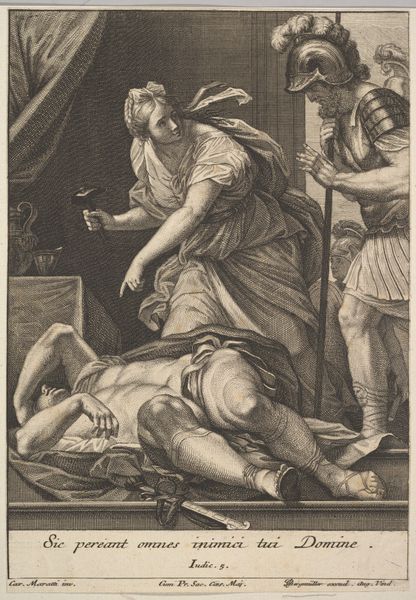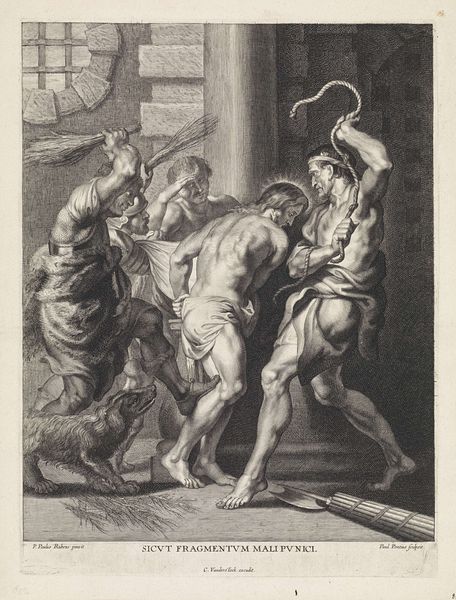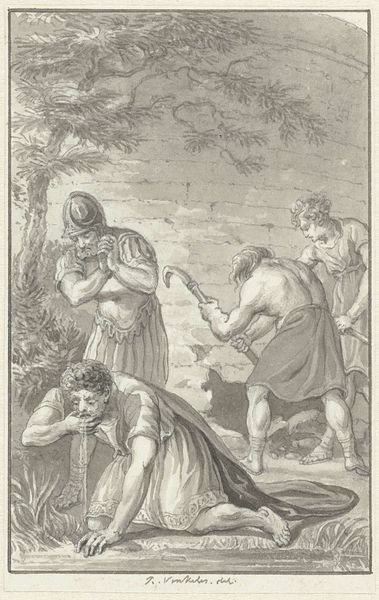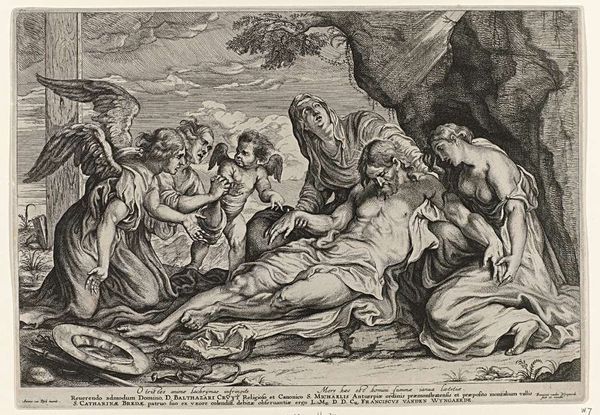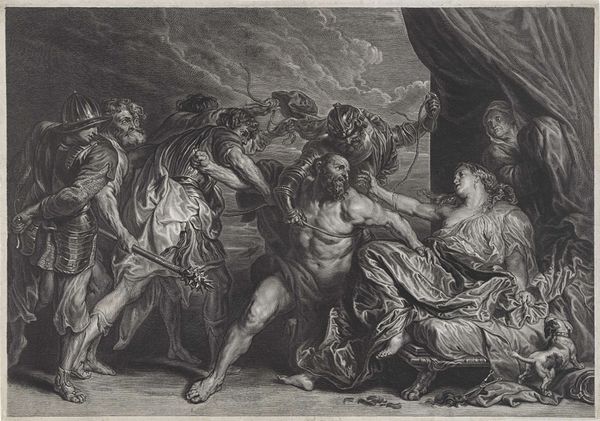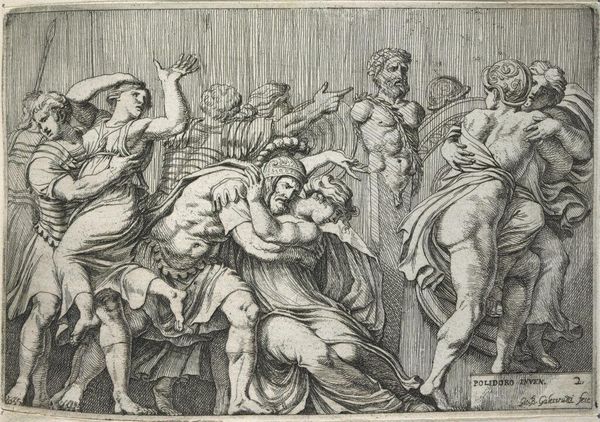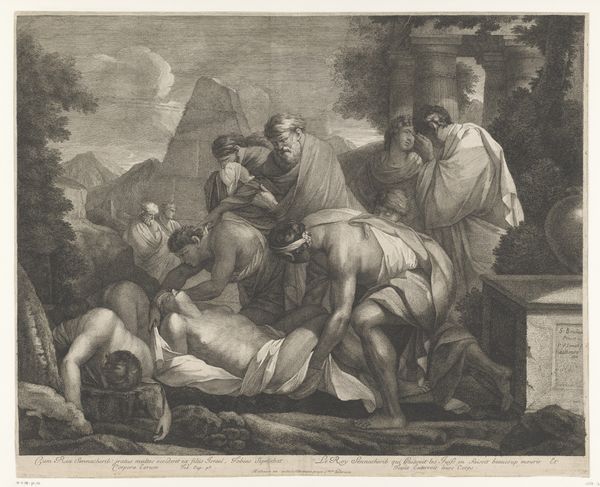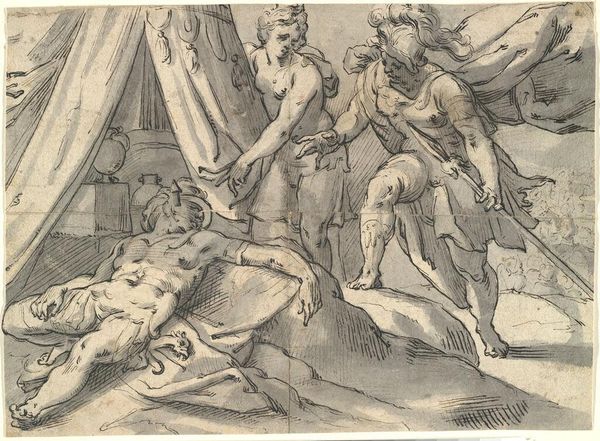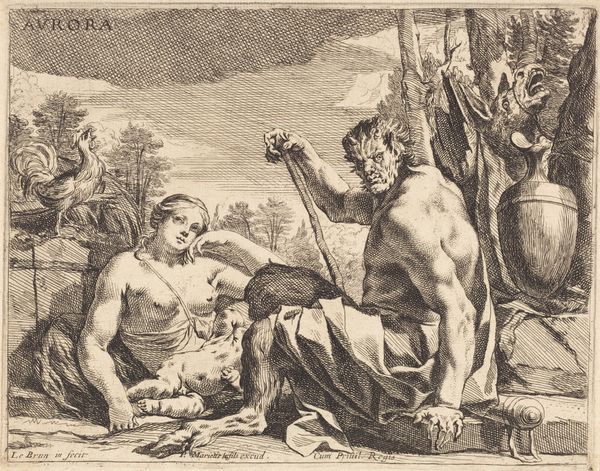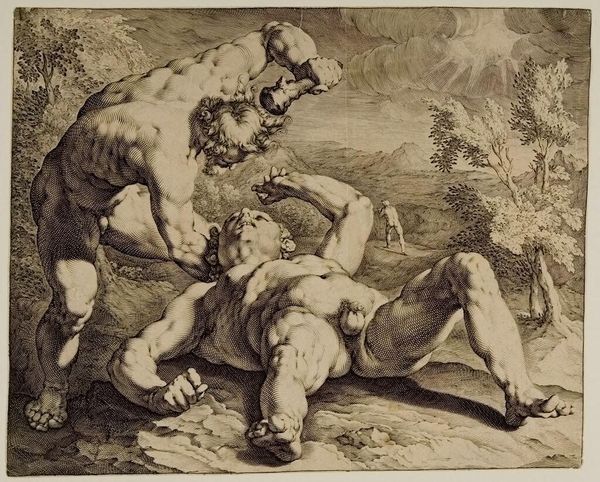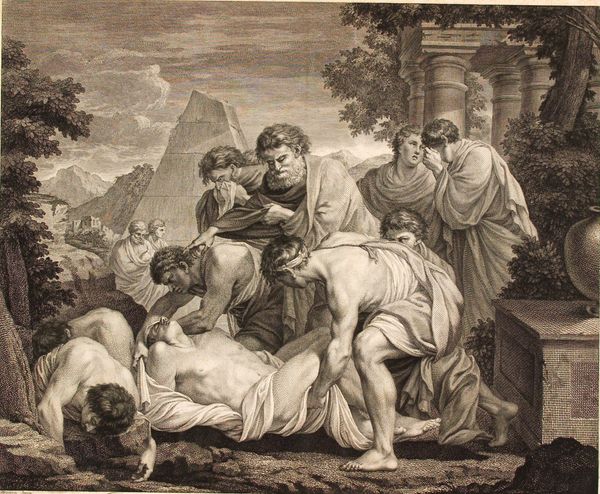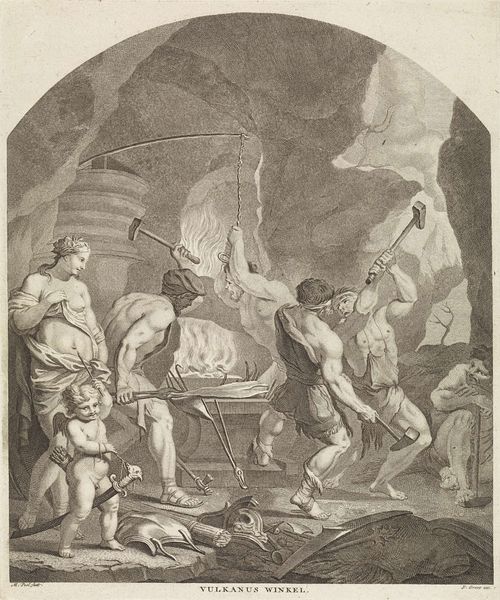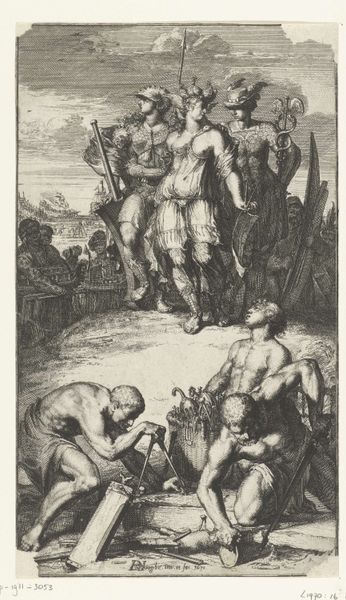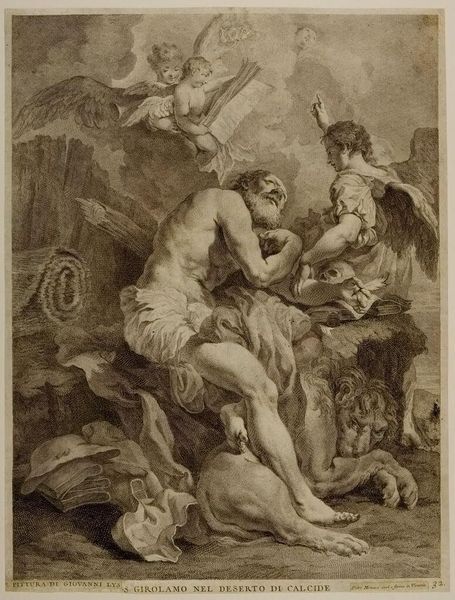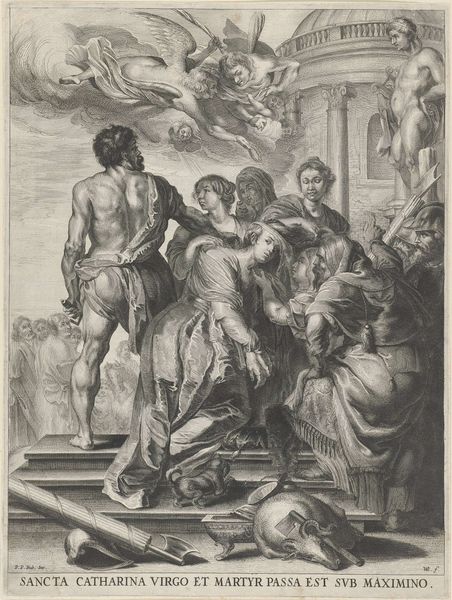
painting, oil-paint
#
baroque
#
painting
#
oil-paint
#
figuration
#
oil painting
#
genre-painting
#
history-painting
#
nude
Copyright: Public Domain: Artvee
Luca Giordano painted "The Drunkenness of Noah" in the late 17th century, presenting a biblical scene steeped in social commentary. Giordano, working in Naples, Italy, during the Baroque period, uses this Old Testament story to reflect on themes of morality, family, and social order. The painting depicts Noah, the patriarch, in a state of undress after consuming wine, while his sons react in different ways. One son covers his father's nakedness, showing respect, while another mocks him. This contrast serves as a commentary on filial duty and the consequences of moral failing. Paintings like this were often commissioned by wealthy patrons or religious institutions, reflecting their values and beliefs. Giordano’s approach to the story reveals the social hierarchies and expectations of his time. Understanding the context of this painting requires research into 17th-century Italian society, religious art, and the patronage system. By exploring these avenues, we can gain a deeper appreciation of how art reflects and shapes the world around it.
Comments
No comments
Be the first to comment and join the conversation on the ultimate creative platform.
